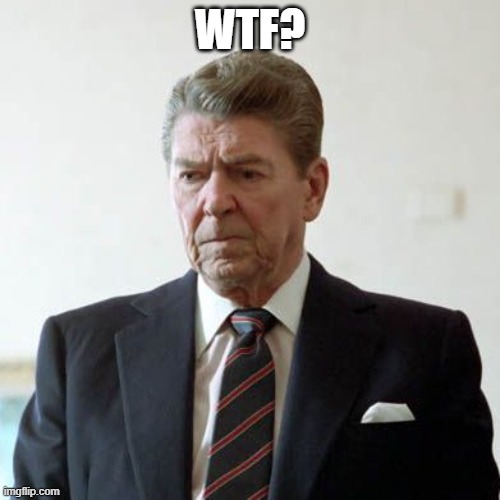We are developing the social individualist meta-context for the future. From the very serious to the extremely frivolous... lets see what is on the mind of the Samizdata people.
Samizdata, derived from Samizdat /n. - a system of clandestine publication of banned literature in the USSR [Russ.,= self-publishing house]
|
“This will be in textbooks”, writes Maria Avdeeva.
Ukraine secretly delivered FPV drones and wooden mobile cabins into Russia. The drones were hidden under the roofs of the cabins, which were later mounted on trucks.
At the signal, the roofs opened remotely. Dozens of drones launched directly from the trucks, striking strategic bomber aircraft.
And — Russia can’t produce these bombers anymore. The loss is massive.
Nothing like this has ever been done before.
In one sense, of course, it has been done before. The military history of the twentieth century contains many examples of large numbers of planes being destroyed on their airfields – by the Japanese at Pearl Harbour, by the Germans at the beginning of Operation Barbarossa, and by the Israelis in the first hours of the Six Day War, to name but three.
But such damage being done by itty bitty little drones that were considered little more than toys a few years ago is new.
My point is: to anyone who understands the reality of Putin’s regime, the idea that he has “gone CRAZY” and is killing people is… well, CRAZY. Vladimir Putin is in power and retains power precisely because he has always been someone who is prepared to lie, manipulate and kill to achieve his objectives. That is literally what the KGB trained him to do.
In his post criticising Putin, Trump went on to add: “I’ve always said that he wants ALL of Ukraine, not just a piece of it, and maybe that’s proving to be right”. Finally, it seems, our American friends are beginning to understand who they are dealing with.
– Konstantin Kisin (£)
The Guardian, 6th December 2024: Romanian court annuls first round of presidential election
The Guardian, 9th March 2025: Pro-Russia Călin Georgescu barred from Romanian presidential election re-run
The Guardian, 15th May 2025: Romania might be about to make a Trump-admiring former football hooligan its president. This is why
Georgescu sounds a nasty piece of work, and Simion not much better, but the “election interference” that might truly kill off Romanians’ faith in democracy is not coming from them.
“I know that the conquest of English America is an impossibility. You cannot, I venture to say it, you CANNOT conquer America…As to conquest, therefore, my Lords, I repeat, it is impossible. You may swell every expense, and every effort, still more extravagantly; pile and accumulate every assistance you can buy or borrow; traffic and barter with every little pitiful German Prince, that sells and sends his subjects to the shambles of a foreign country; your efforts are for ever vain and impotent—doubly so from this mercenary aid on which you rely; for it irritates, to an incurable resentment, the minds of your enemies—to overrun them with the sordid sons of rapine and plunder; devoting them and their possessions to the rapacity of hireling cruelty! If I were an American, as I am an Englishman, while a foreign troop was landed in my country, I never would lay down my arms, never! never! never!”
– William Pitt the Elder, speaking in the House of Lords on 18th November 1777 in opposition to the war against the rebellious American colonists.
There are some things about the views of supporters of President Trump, and of Americans in general, about the situation in Ukraine that I understand very well. Consider this Bloomberg clip from the President’s speech to the United Nations General Assembly on 25th September 2018. The caption to the video says gleefully, “Watch the German delegation’s response at UNGA when Trump says “Germany will become totally dependent on Russian energy if it does not immediately change course.” The German delegation had a good laugh at the American rube and his silly ideas about not being dependent on Vladimir Putin, and all the sophisticated people on both sides of the Atlantic laughed with them.
They are not laughing now. They are still asking for money, though. In the face of such arrogance, it is no surprise that President Trump and a great many of his countrymen are saying, “We tried to warn you about Russia but you laughed. It’s nice that you ‘stand with Ukraine’ now, but you can do it with your own money. Bye.”
That, I get. I don’t agree with the view that the conquest of a country in Europe by Russia can safely be ignored by the US, but I can understand it.
What I do not get is how many Americans whose views I normally admire have moved from saying, “This war is sad, but it’s none of our business” to speaking as if Ukraine were morally in the wrong for continuing to fight. To take one example, here is a recent tweet from Elon Musk:
What I am sickened by is years of slaughter in a stalemate that Ukraine will inevitably lose.
Anyone who really cares, really thinks and really understands wants the meat grinder to stop.
PEACE NOW!!
Similar impassioned pleas for “peace” are being made by many accounts that I follow on X that belong to Americans who are proud supporters of the right to bear arms, people who would until recently have considered themselves spiritual descendants of those unconquerable Americans praised by Pitt. It seems to me that the position of the Ukrainians now is very like that of the Americans then, right down to the invaders of their country being reinforced by wretched hirelings from far away who have been sold by their leaders and sent to die in a the shambles of a foreign war of which they know nothing.
Were the Americans of December 1776 culpable for not laying down their arms when all seemed lost? Should the famous painting of Washington crossing the Delaware be covered up in shame?

Washington not caring about the meat-grinder
Wittingly or otherwise, the MAGA online right started to absorb Russia’s narrative on Ukraine: that it isn’t a real country, that the Ukrainians aren’t a real people, that if they are a real people then they are uniquely corrupt. On and on it went: that Ukrainian soldiers are ‘literal’ Nazis, that Zelensky is constantly buying villas and yachts in the south of France, that the whole war is one big money-laundering operation, that Ukraine’s war to push the Russians back is unwinnable because of the great might of the Russian army – and that the whole thing is a giant waste of US taxpayers’ money.
– Douglas Murray (£)
To all the people holding a vitriolic hated, anger & haranguing Zelenskyy,
Whom remain completely silent over Putin, as if he doesn’t exist – despite the fact that he’s the tyrant that started this invasion & could stop it whenever he wanted to – you’re a pro-Kremlin shill.
– Andreas Koureas
Then there is one other thought. If you are getting praise from the Kremlin, you aren’t on the right side of the argument. Much of what I’ve heard from people with whom I usually align politically has been Kremlin propaganda without a hint of nuance or consideration that invading another country is morally repugnant and indefensible. An internal conflict is not a justification. The popular uprising that overthrew Yanukovych, which some attribute to the CIA—as if they have that level of power (they don’t)—does not justify an invasion. There was never a justification.
The deal on the table is a shitty one for Ukraine and a good one for Russia. I always felt that the least bad outcome would be the one that would have to happen, but sucking up to Putin and pretty much rewarding him for his invasion is going to backfire. The accusations of NATO expanding eastwards begs the question, why do those countries want to join if Russia is such a peaceful neighbour? Zelensky’s point, clumsily and inappropriately made, is that diplomacy hasn’t worked so far and he is right. Moldova, Estonia, Finland and Sweden are getting twitchy and with good reason, they know how this is likely to pan out, hence the point Zelensky was making about security. Without that, no deal is worth signing, for the bloodshed will merely be delayed.
– Longrider
There is a legit argument over what support we should give Ukraine. But I don’t understand how so many conservatives convinced themselves that Ukraine committed an unforgivable offense by getting themselves invaded.
– Megan McArdle
I will forever remember that it was Russia’s invasion of Ukraine that made me realise the political right is as retarded as the political left.
– Tim Newman
I saw this comment by Paul Marks to the previous post and thought, “This is huge. Why isn’t this story the main headline on every news outlet?”
It is being reported, somewhat less prominently than the Princess of Wales going to a carol concert. Heartwarming though that is, I would have thought that the fact that a Romanian court has annulled the first round of their presidential election because the Russians allegedly “ran a coordinated online campaign to promote the far-right outsider who won the first round” was bigger news.
So what if they did? Where did this idea come from that the people of a country are not allowed to watch, read or listen to foreigners attempting to persuade them how to vote? Well, certain foreigners at least – those who promote this information Juche never seem to have a problem with the European Union’s taxpayer-funded propagation of its opinion.
How to tell if the people in Europe making predictions of doom if Trump wins actually believe what they have been saying:
Europeans defence expenditures go to 4%+ (i.e. Polish levels) within the next few months.
Otherwise it’s just so much verbal flatulence.
If Trump does indeed abandon Ukraine and tries to force a de facto surrender of occupied territories on them, and Europe still does not rapidly ramp up defence expenditure, then maybe Trump and the USA was never the problem.
|
Who Are We? The Samizdata people are a bunch of sinister and heavily armed globalist illuminati who seek to infect the entire world with the values of personal liberty and several property. Amongst our many crimes is a sense of humour and the intermittent use of British spelling.
We are also a varied group made up of social individualists, classical liberals, whigs, libertarians, extropians, futurists, ‘Porcupines’, Karl Popper fetishists, recovering neo-conservatives, crazed Ayn Rand worshipers, over-caffeinated Virginia Postrel devotees, witty Frédéric Bastiat wannabes, cypherpunks, minarchists, kritarchists and wild-eyed anarcho-capitalists from Britain, North America, Australia and Europe.
|





